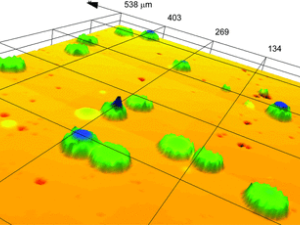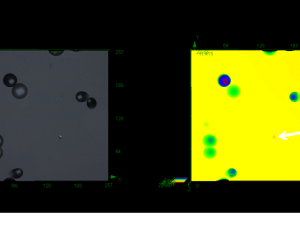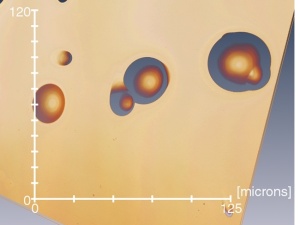Microfluidic Device for Concentration and SERS-based Detection of Bacteria in Drinking Water
Abstract
There is a constant need for the development of easy-to-operate systems for the rapid and unambiguous identification of bacterial pathogens in drinking water without the requirement for time-consuming culture processes. In this study, we present a disposable and low-cost lab-on-a-chip device utilizing a nanoporous membrane, which connects two stacked perpendicular microfluidic channels. Whereas one of the channels supplies the sample, the second one attracts it by potential-driven forces. Surface-enhanced Raman spectrometry (SERS) is employed as a reliable detection method for bacteria identification. To gain the effect of surface enhancement, silver nanoparticles were added to the sample. The pores of the membrane act as a filter trapping the bodies of microorganisms as well as clusters of nanoparticles creating suitable conditions for sensitive SERS detection. Therein, we focused on the construction and characterization of the device performance. To demonstrate the functionality of the microfluidic chip, we analyzed common pathogens (Escherichia coli DH5α and Pseudomonas taiwanensis VLB120) from spiked tap water using the optimized experimental parameters. The obtained results confirmed our system to be promising for the construction of a disposable optical platform for reliable and rapid pathogen detection which couples their electrokinetic concentration on the integrated nanoporous membrane with SERS detection.
Full article:
Source: Image: Stian Magnus Hatling/iStockphoto_173601583



